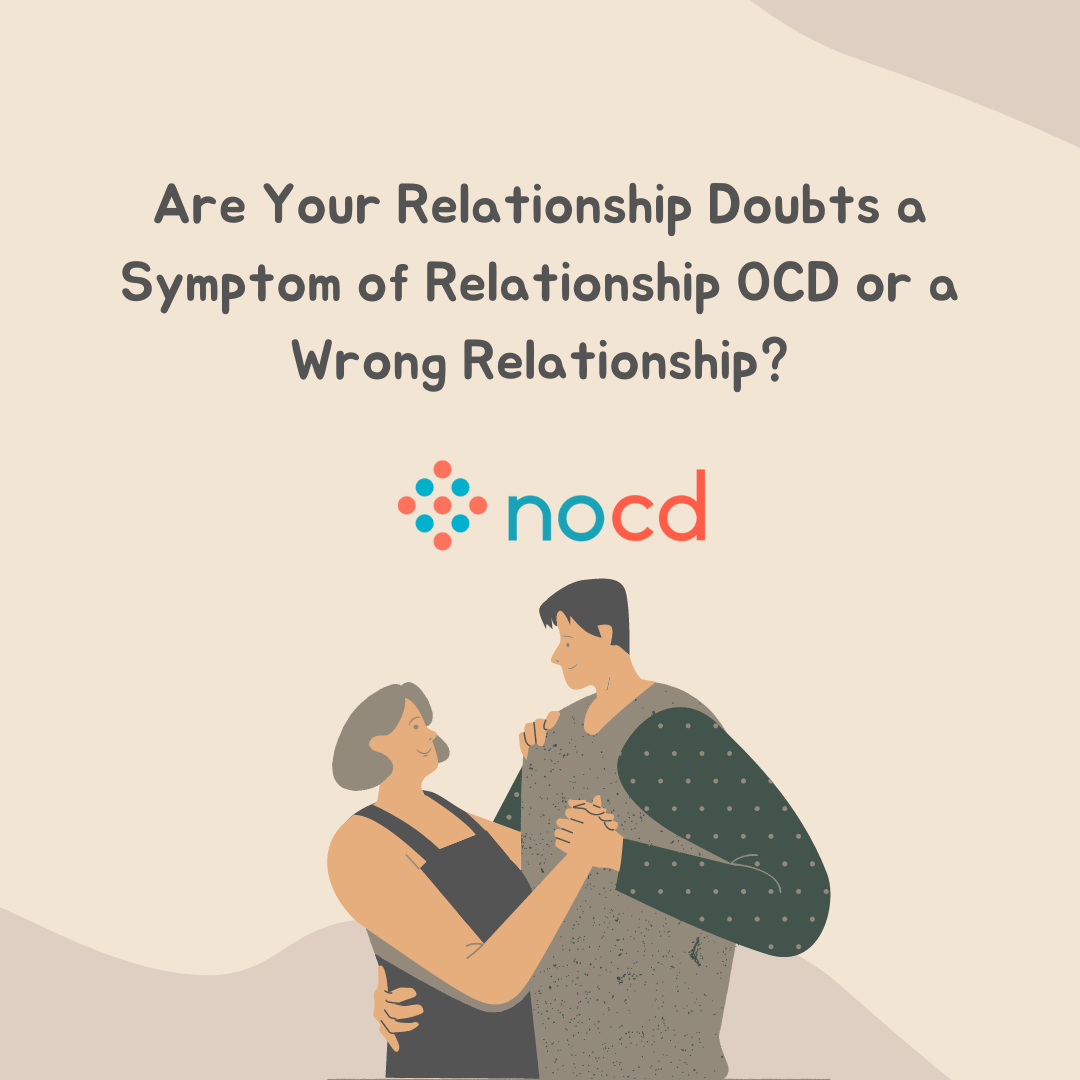Infertility is a condition that makes it difficult or impossible to get pregnant, despite having unprotected penile/vaginal intercourse for at least one year.1 Approximately 12% of women, or 1 in 8 couples, have trouble conceiving or carrying a full-term pregnancy.1,2 Infertility often creates distress and contributes to symptoms of depression, anxiety, and adjustment disorder.3,4,5,6
In order to cope, affected individuals may lean on family and friends, practice various forms of self-care, or seek out therapeutic support.
Relationships aren’t perfect. Navigate the ups and downs in therapy.
BetterHelp has over 20,000 licensed therapists who provide convenient and affordable online therapy. BetterHelp starts at $65 per week. Take a Free Online Assessment and get matched with the right therapist for you.
The Emotional Impact of Infertility
Infertility has been described as a life-defining event because it challenges or interrupts a person’s core identity and sense of self.7 From a young age, many people have visualizations and expectations about having children, including when they will start trying to conceive, how many children they desire, and what kind of parent they want to be.
Societal Expectations
Infertility prevents people from entering into the entire life stage of parenthood as it was originally expected, which in turn can impact one’s entire self-concept and life meaning. It is therefore not surprising that infertility is a highly emotional event, with virtually no limit on the range of feelings that an individual may experience at any given time.
Self-Blame & Feeling Like a Failure
Some women agonize over what they had done “wrong” and feel extreme self-blame. Others internalize feelings of inferiority or failure because their bodies did not perform in the way they are “supposed” to.8
Jealousy & Isolation
It is also not uncommon for individuals to struggle with feeling jealous or envious of those with children or who seem to fall pregnant with little effort.9 Infertility is often a silent and invisible experience, leaving many affected individuals feeling isolated from others who understand what they are going through.7,10
Relationship Strain
The partner relationship is also susceptible to infertility stress. Partners may communicate, grieve, and process the journey in different ways, leaving room for misunderstandings and isolation. Sexual functioning often exchanges satisfaction and fun for scheduled and predictable intercourse, the negative effects of which may even linger long-term.8,9,11
While pursuing fertility treatment, couples face higher levels of depression, anxiety, shame, and self-judgment than couples who are pursuing adoption and couples not affected by infertility.4 Negative emotions virtually disappear if conception occurs, but emotional and psychological troubles have been shown to increase if treatment is unsuccessful.12,13,14 The side effects of potential medical treatments could have an impact on emotions as well.
Financial Stress
A major decision that many individuals and couples will need to make is whether to pursue fertility treatment and in which treatments to invest. The causes for infertility, insurance coverage, and cost of treatment can all impact the path that couples choose to take.
Infertility Stress Impacts All Genders & Orientations
It is important to note that same-sex couples and single individuals may also pursue fertility treatments and experience some of the same stress and difficult choices as those facing infertility. Much of the research on infertility has focused on cis-gender women and heterosexual couples, which contributes to hetero- and gender-normative perspectives in much of the writings on infertility.
How to Cope With Infertility
In order to deal with the emotions and stress of infertility, it is important that you find the coping practices that are the best fit for you. Your infertility story is unique and the better you know yourself and your needs, the better you can learn to take care of yourself during a highly distressing time.
Here are 15 helpful tips for coping with infertility:
1. Check for Depression & Other Mental Health Concerns
Depression is very common for those dealing with infertility, so it is important to use a depression screening tool to learn about your depression risk factors. Talking to a therapist during this time can give you some insight into what you may be actually dealing with. Things can feel heavy and overwhelming, so checking for depression and getting appropriate help is crucial.
2. Give Yourself Permission to Be Angry
It is heartbreaking to deal with infertility, so you are allowed to be angry. Anger is part of the grief process and when you lose something abstract like infertility issues, with no one to blame, anger can build with no relief. Learn how to express that anger in healthy ways and allow yourself to fully feel it. You don’t have to have it together all the time.
3. Don’t Blame Yourself
It is not your fault as you are not able to control your fertility. Understanding that nothing you could have done to prevent this doesn’t mean it’s easy to not blame yourself. Try to use this time to give yourself compassion and allow yourself to grieve. Self compassion is much more helpful during this time than self-blame.
4. Rely on the Support of Friends and Family
Those in your inner circle are likely those who know you best and care about you the most. Therefore, you may not have to look far in order to find loving, consistent, and helpful support. Of course, not every family member or friend is a positive influence in your life. You only need to reach out to those with whom you feel heard and comforted.
5. Engage in Self-Care
Physical self-care may include getting adequate sleep, eating a healthy diet, and exercising regularly. Mental self-care can include keeping a positive outlook and practicing mindfulness. Mindfulness can help you keep your thoughts on the here-and-now, rather than getting lost in thoughts about the past or the future.
You may also want to consider forms of emotional self-care, which can include self-compassion and self-love, particularly for individuals who have internalized feelings of failure, blame, or guilt. The possible ways to engage in self-care are endless and certainly not limited to the aforementioned suggestions. What methods you use should be based on what fits you best in your infertility journey.
6. Say No to Baby-Related Activities
When you are dealing with infertility, it can be really triggering to attend baby showers and baby birthday parties. It’s ok to take care of yourself and say no to those activities, even if you would like to go. It can be helpful to go for some, but for many, these events can be harmful.
7. Advocate for Yourself & Tell Others What You Need
You are the only one who knows what you need from the other people around you. Advocating for yourself includes not just knowing these needs, but also feeling capable to set and enforce appropriate boundaries with others. This may require some work on increasing self-confidence or building assertiveness skills if finding your voice is a challenge.
8. Create Meaning
One of the most gut-wrenching parts of infertility is the uncertainty of the future. Finding meaning in your experience can keep you grounded in the present and help neutralize harsh negative emotions. It can also provide a path forward so that you do not get stuck in grief.
There are, again, virtually endless ways that you can create meaning. Ideas involve finding other ways to take on nurturing roles; developing rituals for during or after fertility treatment; redefining tenets such as womanhood/manhood, parenthood, and family; or creating a life vision or legacy that is not based on having a child.
9. Seek Out the Help of a Therapist
A therapist or counselor can be an excellent source of support. Some clinicians specialize in infertility issues, but many mental health clinicians are equipped with assisting you with your concerns. One-on-one therapy focuses on the concerns you bring to the session. It is a comfortable atmosphere where you can share your deepest thoughts and the therapist attends only to you.
10. Try Couples Therapy
Couples therapy includes both partners and may address areas such as reconnection, improving sexual intimacy, differences in grieving, increasing alignment on disparate issues (for example, situations of one partner wanting to pursue treatment and the other does not), and re-creating definitions of family, legacy, and the future.
Couples counseling can bolster the relationship during a time when it may already be in a vulnerable state. Couples can learn to take care of each other, rather than feeling left behind in the process.
11. Attend Group Therapy or Support Group Sessions
Group therapy is done with other individuals or couples in your area who have been impacted by infertility. A mental health professional leads the group, which is a platform for others to share their stories and find confidants in each other. Group therapy increases connection and avenues for social support, which helps many individuals feel less isolated in their experience.
12. Set a Limit on How Long You’re Going to Try
When you are dealing with infertility, it can be hard to keep trying over and over. Give yourself some limits so you are not setting yourself up for more pain in the future. Decide with your partner what the limit is and remember to keep hope alive during that time.
13. Give Your Partner Permission to Cope Differently Than You
We are all different in how we manage stress and cope with difficulties. If you handle things one way, it doesn’t mean your partner has to do things that way, too. They may have different coping mechanisms, so giving permission to one another to cope in the way that feels good for them is important.
14. Reestablish Intimacy With Your Partner
Infertility can be challenging on your sex life but it is important to consider the impact of intimacy in how you both cope and relate to each other. Intimacy is important to have in any relationship, especially during something as painful as processing and working through infertility issues.
15. Be Realistic But Optimistic
Always keep hope alive, but give yourself permission to grieve if things don’t go the way you hope they will. Being realistic can look different for each partner in the relationship so talking about this with your partner to have a shared meaning of what it means to be realistic is key.
Ready To Invest In Improving Your Relationship
OurRelationship (Free Couples Course) – OurRelationship has been proven to help couples improve communication, intimacy, and trust. 94% would recommend it to a friend. Get Started
Individual Therapy – Happy, healthy relationships start with YOU. Try online therapy and bring your best self to your relationships. BetterHelp has over 20,000 licensed therapists who provide convenient and affordable online therapy. Visit BetterHelp
Couples Therapy – Work together to restore trust and rekindle loving feelings. Video and text based couples counseling start at $50 per week. Try Online-Therapy
Who Should I Consult for Help?
Many individuals first learn of fertility problems in their appointments with an obstetrician or gynecologist, or perhaps even a primary care physician. These medical professionals can work together to assess the physical problems of one or both partners, and discuss the options for fertility treatment, if applicable.
Sometimes other professionals, such as a urologist or endocrinologist are included in the initial assessment and development of treatment, depending on the issues and needs of the individual or couple.
An interdisciplinary team of professionals, made up of medical doctors and mental health professionals, collaborate on the treatment regimen to provide a comprehensive approach for helping the client manage infertility.
Finding an Infertility Counselor
Infertility counseling is a subspecialty of counseling that provides assessment and psychotherapeutic intervention in order to support, educate, research, and treat those struggling with infertility.15 You may find access to a specialist infertility counselor through the fertility clinic you are working with, or as a referral from another medical professional. If you are not working with a clinic or you live outside of major metropolitan areas where these specialists are more likely to work, you may find it challenging to locate an infertility specialist who is accessible to you.
Other advanced training that can bolster a clinician’s ability to work with your infertility concerns includes grief and loss, couple’s therapy, women’s issues, and life transitions. If you are searching for a counselor, you will want to gain an understanding of the clinician’s ability to address your needs. Ask any questions you may have early in your working therapeutic relationship.
How to Be a Supportive Friend or Family Member
If your loved one is struggling with infertility, there are ways you can be helpful support during what is likely to be a very difficult time. The following tips are general guidelines that you can adopt to ensure you are a person of comfort to your loved one, rather than an additional source of stress.
- Just listen: You do not need to have the answers or know the “right” thing to say. Just listening and being present with your loved one can be a great help.
- Be available: You can offer to spend time with your loved one, drive them to a medical appointment, or accompany them to a social event or outing.
- Be flexible: Some social events, such as a family baby shower, are triggering experiences. Give your loved one grace and respect if they make last-minute decisions about attending pre-arranged plans or need to leave the event early.
- Let your loved one lead the journey: Your loved one will make many decisions throughout their infertility journey, most of which are emotional and difficult choices. Be supportive of these decisions, rather than questioning or challenging them, to let your loved one know you are there for them.
- Notice the person, not the infertility: When trying to conceive, your loved one will be surrounded by doctors, family, and friends who are hyper-focused on whether or not they get pregnant. Ask your loved one questions such as, “How are you doing in all this?” rather than, “Are you pregnant yet?” to validate their personhood and show them they are more than a vessel to carry a baby.
What Not to Say to a Friend or Family Member
Now let’s go over some things to avoid that, while seemingly harmless or well-intentioned, can have an adverse impact on the person you’re trying to support.
- Do not offer advice: You believe you’re offering constructive and friendly suggestions, but advice comes across as if you know better than the person who is experiencing infertility first-hand. This feels invalidating and belittling, at worst.
- Do not minimize the hurt: You may be trying to reassure your loved one with comments such as, “You have time,” “Just relax,” or, “At least you have a child already.” Instead, these statements imply that their painful feelings are an overreaction and they “shouldn’t” be feeling this way. If your loved one is hurting and you’re not sure what to say, a simple, “I’m sorry you’re going through this,” or, “I know this is hurting you,” will suffice. The truth of the matter is, there is virtually nothing you can say that will make them feel better, and your loved one knows this.
- Keep opinions and judgments to yourself: There may be times when you do not understand why your loved one suddenly couldn’t come to your child’s birthday party, or why they decided to stop fertility treatment, or why they decided to keep pursuing fertility treatment despite a large monetary investment. You may even find that you do not agree with their decision. If you voice these opinions or judgments you risk your loved one feeling as if they need to justify or defend their choices to you—something that will likely add to their stress and emotional toll.
Infertility Statistics & Background
While the Centers for Disease Control and Prevention (CDC) approximate that 12% of United States women of reproductive age have difficulty with conception, they report 6% meet the full definition of infertility.1 Infertility affects both men and women. Of the hetero- and gender-normative couples with infertility, both male and female factors contribute to about 35% of couples, while male-factor only exists in about 8%.1
Unexplained infertility may also occur, where the problem or interference is unable to be directly identified. Infertility is delineated between primary, when a woman is never able to successfully have a child, and secondary, when a woman is experiencing infertility after having at least one child.16 Dysfunction in the ovaries, fallopian tubes, uterus; and, disruption of testicular or ejaculatory ability, and hormone or genetic disorders, are common causes of infertility in women and men.1
Treatment includes medication (e.g. Clomid, Femara, Metformin), surgery (e.g. clearing blocked fallopian tubes), intrauterine insemination (i.e. artificial insemination), and assisted reproductive technology (ART), which are procedures that work with eggs and embryos outside of the body.1 In-vitro fertilization (IVF) is a common form of ART.
Success rates for fertility treatments are impacted by many factors, one of the most important of which is a woman’s age. According to 2015 data from the CDC, the likelihood that a fresh ART cycle would lead to a live birth was 31% for women younger than 35.1 At age 40, her chance of conceiving is 16%, but by the age of 44 and older, her chances are only 3%.1 Each year, about 1.7% of the babies born in the United States were conceived from an ART intervention.17
Additional Resources
To help our readers take the next step in their mental health journey, Choosing Therapy has partnered with leaders in mental health and wellness. Choosing Therapy is compensated for marketing by the companies included below.
BetterHelp (Online Therapy) – Relationships aren’t easy – a licensed therapist can help. Live sessions can be done via phone, video, or live-chat. Plus, you can message your therapist whenever you want. Visit BetterHelp
Online-Therapy.com (Online Couples Therapy) – Do you and your partner want to work together to have less arguments and better communication? Are there children involved and being caught in the crossfire? Do you love each other but are having a rough time operating as one unit? Couples therapy can help. Get Started
OurRelationship (Free Couples Course) – OurRelationship has been proven to help couples improve communication, intimacy, and trust. 94% would recommend it to a friend. Get Started
Relationship Newsletter (Free From Choosing Therapy) – A newsletter for those interested in improving relationships. Get helpful tips and the latest information. Sign Up
For Further Reading
- RESOLVE: The National Infertility Association: RESOLVE is an organization that provides information about infertility, insurance coverage, and advocacy or volunteer opportunities. The site also connects individuals with medical and mental health professionals and support groups in their local area.
- Path2Parenthood: Formally known as The American Fertility Association, Path2Parenthood helps individuals and couples explore their options for having children. The organization is inclusive to gay and lesbian couples and single men and women. The site offers information about infertility, adoption, surrogacy, and fertility treatments, and connects individuals with medical and mental health professionals.
- American Society for Reproductive Medicine: This site has a plethora of information about infertility and related topics, including assisted reproductive medicine, procedures and treatments, adoption, LGBTQIA reproductive rights, and other professional organizations such as the CDC and the World Health Organization (WHO).
Best Online Marriage & Couples Therapy Options Marriage and couples therapy can be helpful and a worthwhile investment for couples who want to seek help with their relationship. Which online platform will work best for you will depend on what issues you want to work on, what your goals are for your relationship, the cost, and if it’s available in your state. OurRelationship - Free Relationship Course Are Your Relationship Doubts a Symptom of Relationship OCD or a Wrong Relationship? Have you ever wondered to yourself, “What if I’m not in love with my partner anymore? What if I’ve never been?” For some people, these thoughts are more than occasional. They can become constant and overwhelming, and even lead to compulsive actions like seeking reassurance to quiet them. When these thoughts and actions rise to the level of obsessive-compulsive order (OCD), they are known as relationship OCD, or ROCD.












